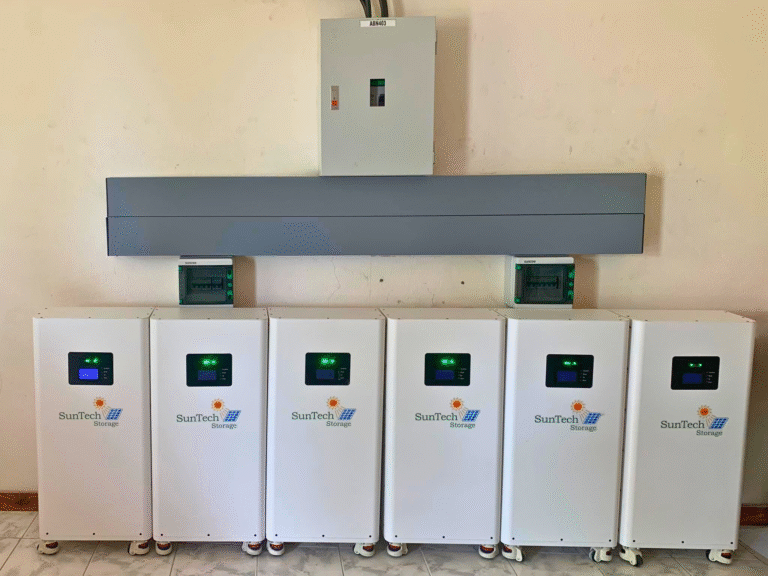
Battery Storage: Should You Get It with Your Solar System?
In the Philippines, solar power has been gaining traction, and more and more homeowners are switching to it. One concern, though, frequently comes up as you weigh your options: should your solar setup include a battery storage system?
Let’s break it down.
What Is a Battery Storage?
A battery storage is exactly what it sounds like: a way to store electricity for later use. During the day, your solar panels often generate more power than your home uses. Without storage, that extra energy is sent back to the grid.
With a solar battery, you capture that surplus and save it. Then at night, during cloudy weather, or when there’s a power outage, your home can tap into that stored energy. Think of it as a giant power bank for your house.
Why Batteries Can Be Great
1. Stay Powered Even When the Lights Go Out
In the Philippines, power interruptions are a fact of life—especially during typhoon season. Heavy rains, strong winds, and grid instability frequently knock out electricity, sometimes for hours or even days.
Here’s the kicker: most solar systems without batteries shut off during outages for safety reasons. So even if the sun is shining, your panels alone can’t power your home when the grid is down.
A battery changes that. It gives you backup power, so your fridge, lights, Wi-Fi, and even fans or air conditioning keep running—keeping your family safe and comfortable.
2. Use More of Your Own Solar Power
Without a battery, your system sends excess electricity back to the grid through net metering. While you do get credits on your electric bill, it’s not always a 1:1 exchange—and that power is essentially loaned out.
A battery lets you keep more of what you produce. Instead of sending it away, you store it for your own use later—at night, during cloudy days, or whenever your usage spikes. This stretches the value of your solar investment and reduces your reliance on utility companies.
3. Lower Your Carbon Footprint
When you use stored solar energy, you pull less electricity from the grid—much of which still comes from coal or natural gas in the Philippines.
That means fewer emissions, less pollution, and a step toward a cleaner future. Solar with battery storage doesn’t just save money—it supports climate action.
When Battery Storage Makes Sense
So, is a battery right for you?
Here are a few situations where it’s a smart move:
-
You live in an area with frequent blackouts or voltage drops.
-
You want peace of mind during typhoon season or extreme weather.
-
You use a lot of power at night or during peak hours.
-
You want to become more energy independent and less reliant on the grid.
If any of these sound like you, a solar battery can be a worthwhile investment—not just for comfort, but for resilience.
When It Might Make Sense to Wait
Battery technology is powerful, but it’s not cheap. Adding a battery can nearly double the upfront cost of your solar installation.
If your local power supply is stable and outages are rare, you might not need backup power right away. A grid-tied system (without a battery) still offers major savings on your electric bills and costs less upfront.
You can always start with panels and add a battery later when it fits your budget or as your needs grow
Battery storage isn’t just an add-on—it can transform your solar system into a more secure, self-reliant, and environmentally friendly setup. In a country like the Philippines where blackouts are common and energy costs continue to rise, that can make a real difference.
But like all smart investments, timing and context matter. If you’re in a low-risk area and want to start saving now, going solar without a battery is still a bright move—and leaves the door open for upgrades later.
Whether you go all-in with a battery or start simple, solar power is a step toward a more sustainable and empowered future.
